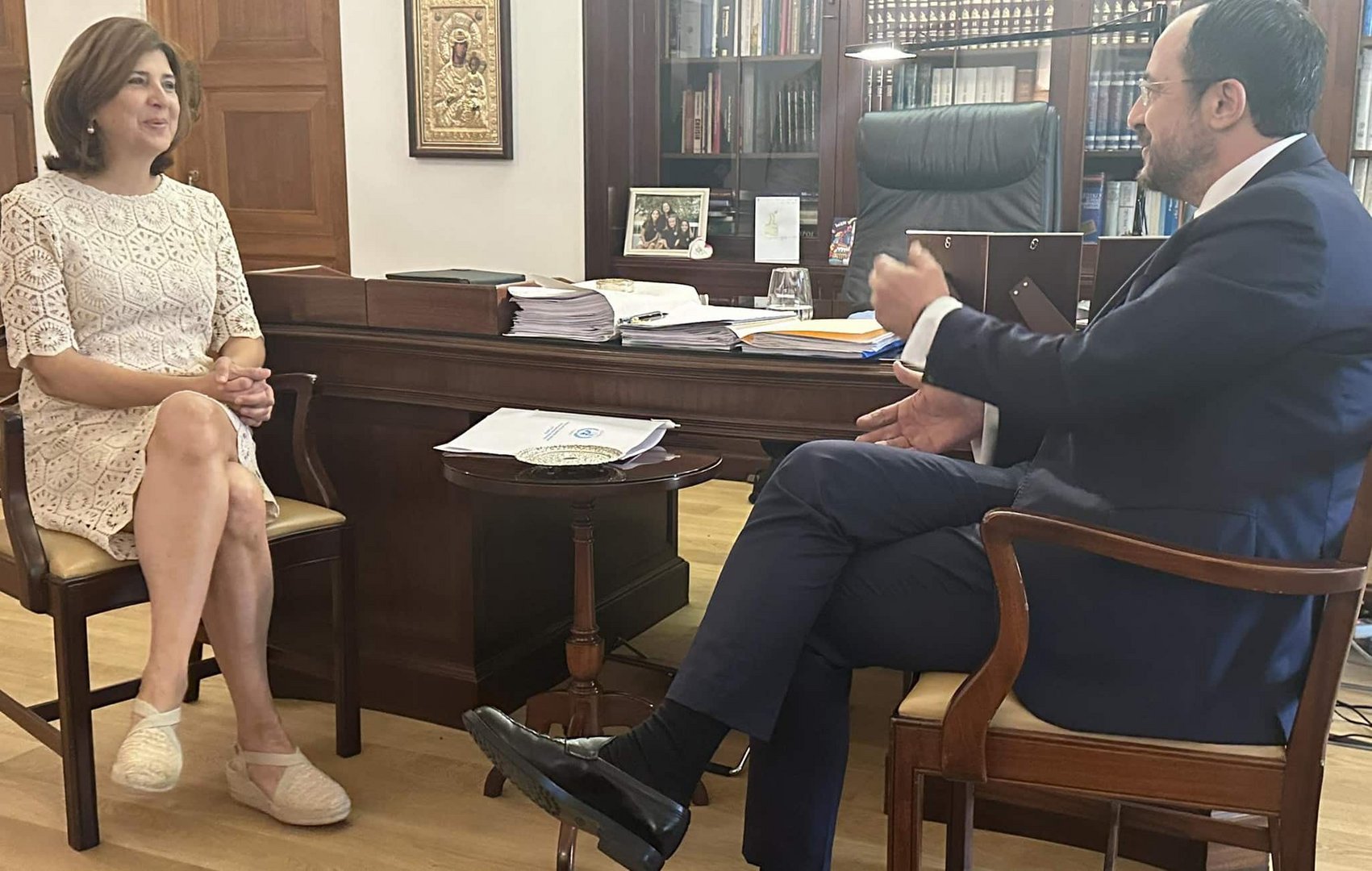The personal envoy of the UN secretary-general, Maria Angela Holguin described both of Wednesday’s meetings with President Nikos Christodoulides and later with Turkish Cypriot leader Ersin Tatar as “constructive”.
“As I said after my first visit to Cyprus, I listen to everyone, from civil society groups to people working in the private sector. I have been in many meetings and my impression is that everyone wants to move forward,” Holguin said after the one and a half hour meeting at the presidential palace with Christodoulides.
“I wish leaders would listen to the people I speak to. I will continue my work, as I have done in the previous days with meetings all over Europe, as well as in Moscow and in Washington.
“I hope that leaders will see the support of the international community and do everything to move forward,” Holguin said.
After meeting Christodoulides, she made her way to the north to hold talks with Turkish Cypriot leader Ersin Tatar.
“Tatar reiterated his positions [for a two-state solution]. From my side, I informed him of my talks to international officials, specifying that they all support a lasting solution to the Cyprus problem,” she said.
“It is now up to both leaders to find a common ground for negotiations to restart. Once again, everyone I met on the island wants to move forward,” she said.
For his part, Tatar insisted negotiations could only restart “once the Turkish Cypriot side is granted sovereign equality and equal international status”.
In statements made to Turkish Cypriot media outlet Kibris Postasi, he said he pointed out to Holguin “the lack of a common ground” to resume the talks.
“Our sovereignty is paramount. The UN Security Council’s Resolution 186 of March 4, 1964, continues to define the government of the Republic of Cyprus as the government of the entire island,” he said.
“If there is no common ground, there is no point in starting a meeting or another negotiation process. What binds us is the recognition of the TRNC as a state and our relationship with Turkey.”
The next meeting between Holguin and Christodoulides will take place on May 13, a day before her departure from Cyprus.
Following her meeting with Christodoulides, government spokesperson Konstantinos Letymbiotis said the content of Holguin’s visits preceding that to the island “were thoroughly discussed and analysed”.
“What matters at this moment is to let diplomacy work,” Letymbiotis said.
Asked to comment on whether the Turkish Cypriots will agree with the renewal of Holguin’s mission, he said that it will be up to the UN to decide on the matter.
“There is no time limit. The UN secretary-general decides how long the mission of his personal envoy will last,” the spokesperson said.
“What we can say is that we hope to resume negotiations as soon as possible within the next six months.”
On Monday, Holguin met the Turkish Foreign Minister Hakan Fidan in Ankara.
In April, she visited Brussels, meeting European Council president Charles Michel, European cohesion commissioner Elisa Ferreira, and the European Union’s foreign policy chief Josep Borrell.
In the wake of Holguin’s last round of talks, Christodoulides expressed hope that there will be developments that allow for optimism about the resumption of negotiations.
In his Easter message, the president reiterated that despite the challenges posed by the Turkish side, his priority is the resumption of substantive negotiations on the basis of the agreed UN framework.







Click here to change your cookie preferences